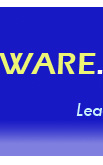Over
sixty years ago, Charles Gragg, one of the originators of
case teaching at the Harvard Business School, stated:
“Education in the professions should prepare students for
action.”[As
teachers of management, my colleague, Ed Bridges and I have
long shared Gragg’s value concerning the importance of this
purpose of education. Indeed, our initial interest in
problem-based learning during the 1980s resulted from our
own search for approaches to teaching and learning that met
this criterion for education in the professions. Our
subsequent experience using PBL in management education
programs in North America, Australia and Asia reinforces our
belief in its efficacy as an approach that prepares
‘managers for action.’
Although
we believe that PBL represents a potentially powerful
approach to preparing ‘managers for action,’ at no point
do we advocate for others to employ PBL as the only
method of teaching and learning for use in all schools,
by all instructors, and for all subject matter. PBL is
one of a number of approaches that, used skillfully,
enables us to meet the ambitious goal of preparing
‘managers for action.’
Strengths
of problem-based leadership development include the
following::
· Problem-solving
skills and attitudes: Confidence to take on problems as
opportunities, as well as the ability to think systematically,
analytically, critically, and creatively.
· Global
perspective: A broad perspective based on an understanding
of issues and opportunities in both the local and global
environments.
· Leadership
competencies: The ability to work collaboratively in
creating a vision for the organization, developing a socially
responsible strategy for implementation, and motivating others
to join in working towards its achievement.
· Management
competencies: Ability to use skills in managing projects,
resources and business processes to achieve results efficiently.
· Ethical
judgment and decision-making:
Awareness of the ethical impact of
decisions and the importance of values in managing people and
organizations in a diverse, global society.
· Adaptability,
self-reflection, and personal development: Understanding
ones’ own value orientation, developing a capacity for
reflection, and cultivating skills and attitudes that support
lifelong learning.
· Communication:
Ability to communicate effectively, orally and in writing,
in working with culturally diverse audiences.
· Functional
knowledge: A comprehensive knowledge of the functional areas
of management including the ability to employ relevant social
science theories and craft knowledge in managing organizations.
· Managing
information and technologies: Knowledge of and ability to
plan for and use information technologies as tools for
productive management of organizations. |















